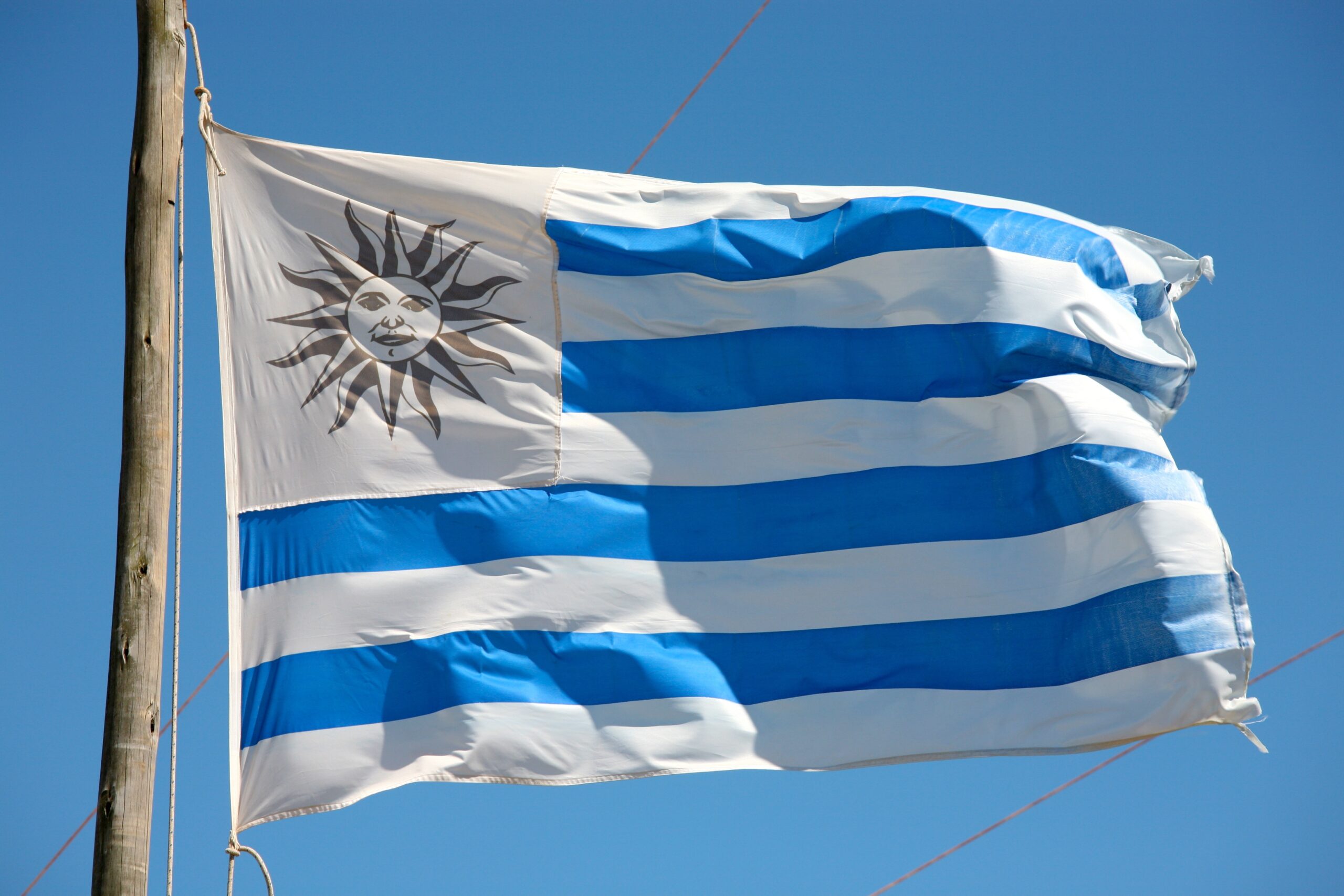Individual Voluntary Arrangements (IVAs) have become increasingly popular as a means for individuals to effectively manage their debts. In essence, an IVA serves as a legally binding agreement between an individual and their creditors. This agreement allows the individual to gradually repay their debts within a predetermined timeframe. The remarkable benefit lies in the fact that, upon completion of the IVA term, the remaining debt is completely written off by the individual’s creditors.
Individual Voluntary Arrangements (IVAs) provide a structured approach for individuals facing overwhelming debts, allowing them to repay what they owe while safeguarding their assets from creditors. However, IVAs may not be suitable for everyone. It is crucial to explore all available options before making a decision regarding the appropriateness of an IVA. If you find yourself struggling and in need of guidance, it would be advisable to seek assistance from Citizens Advice.
Contents
Understanding IVA
An Individual Voluntary Arrangement (IVA) is a formal agreement between an individual and their creditors. Its purpose is to assist those burdened with overwhelming debt in repaying their creditors over a specific period, typically lasting five or six years. This arrangement offers a structured approach for managing financial obligations.
An Individual Voluntary Arrangement (IVA) is a legally binding agreement overseen by a licensed insolvency practitioner. This professional collaborates with the individual to establish a repayment plan tailored to their income and expenses. Additionally, the practitioner engages in negotiations with creditors to determine an agreeable reduced amount of debt for repayment.

IVA (Individual Voluntary Arrangements) are only accessible to individuals who have a minimum of £6,000 in unsecured debt owed to two or more creditors. However, it’s important to note that IVAs cannot be availed by individuals with secured debts like a mortgage or car loan.
An IVA offers a significant advantage by enabling individuals to steer clear of bankruptcy. Bankruptcy carries severe consequences, which may include the loss of assets, employment restrictions, and challenges in obtaining credit in the future.
- The individual must have a regular income and be able to afford the agreed repayment plan.
- The individual should possess a willingness to diligently follow strict budgeting and financial management practices.
- The individual should be aware that an Individual Voluntary Arrangement (IVA) will have a detrimental effect on their credit rating for a period of six years.
An IVA can be a useful tool for individuals struggling with overwhelming debt. However, it is crucial to carefully weigh the advantages and disadvantages before committing to an agreement.
Pros of an IVA
An IVA, short for Individual Voluntary Arrangement, serves as a formal agreement between an individual and their creditors. This agreement enables the individual to gradually repay their debts over a predetermined period. Now let’s explore some of the advantages associated with an IVA:
1. Affordable Payments
An IVA provides individuals with a significant advantage – it enables them to make affordable payments towards their debts. These payments are based on the individual’s affordability, ensuring that they can manage their financial responsibilities. Moreover, creditors are legally obligated to accept these payments, providing individuals with peace of mind and a clear path towards debt resolution.
2. Protection from Legal Action
An Individual Voluntary Arrangement (IVA) offers protection from legal action taken by creditors. Once an IVA is implemented, creditors are prohibited from pursuing any legal measures against the individual, as long as they adhere to the agreed-upon terms.
3. Interest and Charges Frozen
One benefit of an IVA is that it halts the accumulation of interest and charges on an individual’s debts. Consequently, during the duration of the IVA, the debt remains stagnant, facilitating easier repayment.
4. Flexibility
An Individual Voluntary Arrangement (IVA) offers a flexible debt solution that can be customized to meet the specific needs of individuals. In this arrangement, the terms can be adjusted if there are changes in an individual’s circumstances, which ultimately facilitates easier management of their debt.
5. Reduced Stress
Debt can cause significant stress for individuals, impacting their mental health and overall well-being. However, an Individual Voluntary Arrangement (IVA) offers a solution to alleviate this stress by providing a clear repayment plan and shielding the individual from potential legal actions by creditors.
An Individual Voluntary Arrangement (IVA) can provide a beneficial solution for people facing financial difficulties. It offers manageable payments, legal protection, reduced interest and charges, flexibility, and alleviates stress.
Cons of an IVA
In considering a way to manage debt, you may come across the option of an Individual Voluntary Arrangement (IVA). While it can appear appealing, it’s essential to weigh the potential drawbacks before making a commitment.
One of the main drawbacks of an Individual Voluntary Arrangement (IVA) is its potential negative impact on credit scores. This occurs because an IVA is considered a form of insolvency, and its presence will be documented on the individual’s credit file for a period of six years starting from the initiation of the arrangement. Consequently, securing future credit may pose challenges as lenders might perceive the person as a higher risk borrower.
One potential downside of an IVA is the requirement for individuals to make regular payments over a prolonged period, typically ranging from five to six years. This extended commitment may prove challenging if their financial situation undergoes changes during this duration, potentially causing difficulties in meeting the payment obligations.
Furthermore, it is important to consider the potential costs associated with an Individual Voluntary Arrangement (IVA). The setup and administration of such arrangements typically involve fees. These fees can be deducted from the individual’s monthly payments, ultimately reducing the amount allocated towards debt repayment.
It’s worth mentioning that not all debts can be included in an Individual Voluntary Arrangement (IVA). Debts like student loans, court fines, and child support payments are exceptions. Consequently, individuals will still bear full responsibility for paying off these debts entirely.
IVA Vs Bankruptcy
When considering debt solutions, two commonly explored options are Individual Voluntary Arrangements (IVAs) and Bankruptcy. Both alternatives come with their own advantages and disadvantages, so it is crucial to carefully assess the disparities before reaching a decision.
IVA
An Individual Voluntary Arrangement (IVA) serves as a legal agreement between an individual and their creditors with the purpose of repaying a portion of their debt over a defined period, typically lasting five years. This flexible solution presents individuals with the opportunity to retain ownership of valuable assets like their home or vehicle, while effectively avoiding bankruptcy.
One of the main benefits of an Individual Voluntary Arrangement (IVA) is its privacy. It establishes a confidential agreement exclusively between the individual and their creditors, without any public advertising in local newspapers or inclusion on the Individual Insolvency Register. This aspect safeguards the individual’s reputation.
IVAs can be costly, and the charges can accumulate rapidly. It is crucial to select a trustworthy insolvency practitioner who offers transparent and easily understandable pricing.
Bankruptcy
Bankruptcy is a legal process wherein an individual declares their inability to repay debts. It represents a more drastic solution compared to an IVA and can result in significant consequences, including the loss of assets and a negatively affected credit score.
Bankruptcy may offer a swifter and more cost-effective solution than an Individual Voluntary Arrangement (IVA). Unlike an IVA, bankruptcy doesn’t involve ongoing fees. Additionally, it is a public option that gets advertised in local newspapers and on the Individual Insolvency Register.
Bankruptcy offers a significant advantage by providing individuals with a fresh start. It allows them to have most of their debts written off within a year, enabling the opportunity to rebuild their credit score.
The decision to opt for an IVA or bankruptcy is contingent upon the individual’s unique circumstances. It is crucial to seek professional advice and thoroughly evaluate all available choices before arriving at a decision.
Eligibility for an IVA
Individual Voluntary Arrangements (IVAs) are a debt solution available to residents of England, Wales, and Northern Ireland. To qualify for an IVA, individuals must fulfill specific criteria.
Debt Amount
The minimum debt amount required to enroll in an IVA is typically around £6,000. However, this threshold may vary depending on the chosen insolvency practitioner. On the other hand, there is no specific maximum limit for an IVA application, but it is generally recommended for individuals with debts totaling £10,000 or more.
Income and Expenditure
To qualify for an Individual Voluntary Arrangement (IVA), individuals must have a steady and reliable source of income. It is also essential to make regular monthly payments towards outstanding debts. The assessment process involves analyzing both income and expenses to determine the feasible monthly payment amount. However, it’s important to note that if one lacks any income or has irregular earnings, an IVA may not be the most suitable option.
Types of Debt
IVAs are commonly utilized for managing unsecured debts like credit cards, personal loans, and overdrafts. Nonetheless, it’s important to note that secured debts such as mortgages and car loans cannot be included in an IVA. However, if you find yourself facing arrears on your secured debts, it is possible to include them within the IVA arrangement.
Insolvency
To qualify for an Individual Voluntary Arrangement (IVA), one must be insolvent, meaning they are unable to meet their debt obligations on time. However, even if you possess assets like a house or car, it may still be possible to enter into an IVA. In such cases, you might need to release the equity from these assets in order to repay your creditors.
An IVA can be a suitable debt solution for individuals who meet the eligibility criteria. To determine if an IVA is the right option, it is important to seek guidance from a qualified insolvency practitioner.
Impact on Credit Score
When individuals contemplate an Individual Voluntary Agreement (IVA), they often express concern regarding its potential impact on their credit score. It is important to note that an IVA can indeed have a negative effect on one’s credit rating, though the degree of this impact varies depending on the individual’s unique circumstances.
During the Individual Voluntary Arrangement (IVA), a person’s credit score is negatively impacted, preventing them from obtaining additional credit. The IVA is recorded on their credit file, which can pose challenges for future credit applications. However, once the IVA is successfully completed, the individual’s credit score will gradually improve.
The length of time it takes for a person’s credit score to recover will depend on a range of factors, including the length of the IVA, the amount of debt involved, and the person’s credit history before the IVA. It is worth noting that some lenders may view an IVA more favourably than bankruptcy, as it shows a willingness to repay the debt.
It is worth considering that if an individual fails to make payments during the Individual Voluntary Arrangement (IVA), their credit score will be further adversely affected. Therefore, it becomes crucial for individuals to ensure affordability of IVA payments prior to entering into the agreement.
An Individual Voluntary Arrangement (IVA) can negatively impact a person’s credit score, although the extent of this impact varies depending on individual circumstances. It is crucial to consider the potential consequences on credit before entering into an IVA and ensuring that one can afford the payments to prevent further harm to their credit score.
IVA and Your Assets
An Individual Voluntary Arrangement (IVA) is a legal agreement that binds an individual to their creditors, establishing a fixed timeframe for debt repayment. This arrangement offers protection for the individual’s assets during the agreed-upon period. It’s crucial to consider how an IVA might impact your personal assets.
Your Home
If you are a homeowner, there might be a requirement for you to release some of the equity in your property to settle your debts. This can involve either remortgaging your home or making additional payments towards your IVA. It is important to understand that entering into an IVA does not automatically lead to repossession of your home.
Your Car
If you happen to own a car, its maintenance depends on whether it is indispensable for either your professional commitments or personal life. In case you are financing the vehicle, ongoing payments will be necessary. However, if you possess the car outright, it may be regarded as an asset that could potentially be utilized to settle any outstanding debts.
Other Assets
In an Individual Voluntary Arrangement (IVA), your assets play a crucial role. These can include savings, investments, and valuable possessions. It is important to note that you may need to release some of the value from these assets in order to repay your creditors. To ensure transparency, it is essential that you disclose all your assets to your Insolvency Practitioner. They will provide guidance on how your assets may be affected by the IVA process.
Cost of an IVA
An Individual Voluntary Arrangement (IVA) is a formal agreement where debtors and creditors come to an understanding, agreeing to repay a portion of the debts over time. While an IVA can offer relief for individuals grappling with debt, it’s crucial to consider the associated costs.
The cost of an IVA can vary depending on the individual’s circumstances and the chosen insolvency practitioner (IP). Typically, IPs charge a fee for their services, which is deducted from the monthly payments made by the debtor. This fee can be a percentage of the total debt or a fixed fee.
- Set-up costs refer to the expenses that the IP (intellectual property) incurs during the establishment of the IVA (Individual Voluntary Arrangement). These expenses may include legal fees and court costs.
- Fees for the nominee: The nominee, who assists the debtor in preparing the IVA proposal, charges a fee for their services. This fee is typically included within the fees of the IP (Insolvency Practitioner).
- Supervisor fees are charged by the IP, who oversees the IVA once it is approved. These fees cover their services and are deducted from the debtor’s monthly payments.
- Disbursements refer to the expenses that the IP incurs while fulfilling their duties. These expenses typically include postage and photocopying fees.
It is worth noting that the costs of an Individual Voluntary Arrangement (IVA) can accumulate rapidly and may not be suitable for every individual. Therefore, individuals in debt should diligently evaluate their available options and consult a qualified debt advisor before committing to an IVA.
IVA Completion and Aftermath
Once an Individual Voluntary Arrangement (IVA) is successfully completed, debtors are granted freedom from their financial obligations. Any remaining outstanding balances are effectively forgiven. The completion of an IVA can bring immense relief to individuals who have long been burdened by debt, offering them a viable path towards achieving a debt-free life.
Before deciding to enter into an Individual Voluntary Arrangement (IVA), it is crucial to consider its potential consequences. One significant impact is the negative effect on the debtor’s credit score, lasting for six years from the IVA’s commencement. Consequently, securing credit or loans might prove challenging during this period, as any available credit options are likely to come with high-interest rates.
It is worth mentioning that any assets owned by the debtor, such as a house or a car, might be at risk throughout the IVA process. In case the debtor fails to meet the required payments, these assets could potentially be seized in order to settle the outstanding debt.
Despite the potential consequences, completing an Individual Voluntary Arrangement (IVA) can be a crucial step towards achieving financial stability. By undertaking an IVA, individuals seize control over their debts and actively work toward attaining a debt-free future.
Conclusion
In summary, an Individual Voluntary Arrangement (IVA) can serve as a useful tool for individuals grappling with debt. It offers the opportunity to consolidate debts into one manageable payment while also providing protection against creditors. Nevertheless, it is crucial to thoroughly assess the potential drawbacks before committing to an IVA.
One drawback of an Individual Voluntary Arrangement (IVA) is its impact on a person’s credit score. The IVA remains recorded on their credit report for six years, making it challenging to access future credit opportunities. Furthermore, failure to keep up with payments can result in the termination of the IVA and potential bankruptcy.
Considering the cost of an Individual Voluntary Arrangement (IVA) is an essential factor. While it may offer a more affordable solution compared to debt management plans or bankruptcy, it still involves certain fees and charges. These expenses encompass setup fees, monthly fees, as well as completion fees.
Determining the worthiness of an IVA (Individual Voluntary Arrangement) relies on individual circumstances and priorities. While it can be a suitable solution for those aiming to steer clear of bankruptcy and maintain a steady income, it may not universally suit everyone. It is crucial to obtain counsel from professionals, thoroughly evaluate the advantages and disadvantages, and make an informed decision.
Frequently Asked Questions
An IVA can be a beneficial choice for individuals facing overwhelming debts. It offers various advantages, including lower monthly payments, protection against legal actions from creditors, and the possibility of partially erasing the debt burden. However, it is essential to consider some drawbacks associated with an IVA. These include potential damage to one’s credit rating, the requirement to provide financial information to the insolvency practitioner, and the risk of failure if the debtor struggles to meet payment obligations.
The cost of an Individual Voluntary Arrangement (IVA) varies based on the individual’s circumstances and choice of insolvency practitioner. Typically, debtors make monthly payments to the practitioner, who then distributes the funds among creditors. The monthly fee can range from £100 to £500, depending on the amount of debt and the debtor’s income. In addition, there may be extra charges for setting up the IVA and for the services provided by the insolvency practitioner.
While under an IVA, individuals can still enjoy a holiday. However, it is crucial to notify the insolvency practitioner and ensure that the vacation remains within the designated budget. Taking an extravagant trip may be deemed as a violation of the IVA agreement, potentially jeopardizing its success.
An IVA imposes restrictions on a debtor’s spending and borrowing. The debtor must follow a budget set by the insolvency practitioner and obtain approval before making significant purchases. Additionally, the debtor may be required to release equity from their home or sell assets in order to repay the debt.
When you choose to pay off an Individual Voluntary Arrangement (IVA) before its scheduled end, several benefits arise. Your credit rating can improve, and the burden of debt-related stress may reduce. However, it is crucial to consider the potential costs associated with early settlement. Fees and penalties might apply in such cases. It is advisable to consult an insolvency practitioner and thoroughly evaluate all available options before finalizing your decision.











